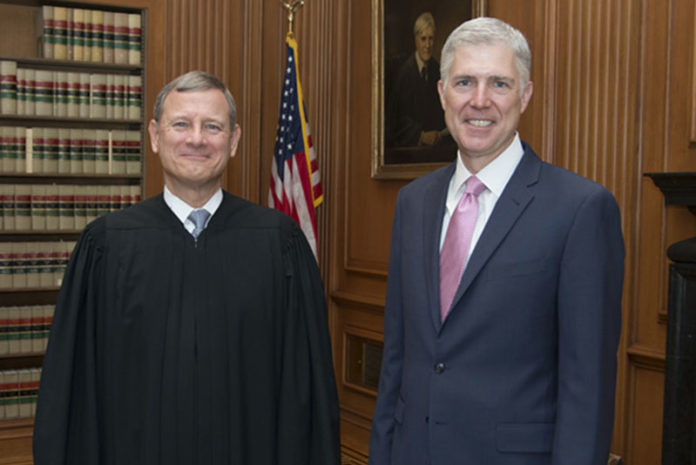The Supreme Court had agreed on Monday to hear the case of National Institute of Family and Life Advocates v. Becerra, challenging a Californian law which requires pro-life crisis pregnancy centers to notify all visitors of the closest place to get free abortions.
The institute argues the “Reproductive Freedom, Accountability, Comprehensive Care, and Transparency” (FACT) Act unconstitutionally violates their freedom of both speech and religion by coercing it to refer patients to abortion services.
The institute’s attorneys at the Alliance Defending Freedom (ADF), said in a news conference that free speech is violated “whether it’s censored or coerced.” ADF President and General Counsel Michael Farris explained, “The government should never be permitted to coerce speech it favors over speech it does not favor.” It is clear that, “this law has a direct partisan, one-sided effect.”
The 9th Circuit Court of Appeals upheld the law, saying that the law did not endorse the abortion and was viewpoint neutral. Attorney General Xavier Becerra, who had received thousands of dollars from Planned Parenthood and other abortion industry interest groups as a congressman, pledged to continue to defend it in court in a press release. He said the law aims to increase the rate at which California women are subjected to abortion.
“The Reproductive FACT Act ensures that women in California receive accurate information about their healthcare options,” Becerra had said in a statement. “The California Department of Justice will do everything necessary to protect women’s healthcare rights.”
The law not only forces the doctors in medical practices and other pro-life clinics to provide the patients with information about procuring an abortion, but also takes aim at the non-medical facilities. Crisis pregnancy centers that offer pregnant mothers the non-medical aid, such as food, clothing, furniture, and baby supplies, are also forced to post disclaimers that they are not medical facilities.
ADF Senior Counsel Kevin Theriot said that this aspect of the law boosts his client’s case. The state has more wiggle room to regulate medical facilities, but the law “goes way beyond informed consent for a surgical procedure,” as per Theriot. The inclusion of non-medical facilities clarifies the viewpoint discrimination inherent to the law.
“They are being forced to say something in a way that crowds out their other message,” he said. “The FACT Act applies when no medical procedure is being provided … so the state’s interest in coercing that type of speech is much less than in situations when informed consent needs to be provided.”
The case could have ramifications beyond California. Similar legislation have been adopted in other heavily Democratic states, including the places like Hawaii and Illinois. Those regulations would be vulnerable to legal challenge even if the Court decides to rule only on California’s law.
“There are copycat laws popping up all over the place,” Theriot had said. “We are very optimistic and hopeful that the Supreme Court will demonstrate not only to California, but to other states that forced speech … is just not acceptable and antithetical to what the founders set forth.”
































